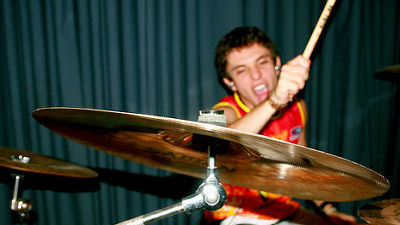Studies show that 'using tools improve language skills'

For the first time in the world, a study using
Tool use and language share syntactic processes and neural patterns in the basal ganglia
https://www.science.org/doi/10.1126/science.abe0874
Using Mechanical Tools Improves Our Language Skills | Newsroom | Inserm
https://presse.inserm.fr/en/using-tools-improves-our-language-skills/44084/
Using mechanical tools improves our language skills, study finds --ScienceDaily
https://www.sciencedaily.com/releases/2021/11/211111154244.htm
Language skills have long been considered 'complex skills that use specific networks of the brain.' In recent years, research has shown that areas of the brain involved in controlling language functions, such as 'processing the meaning of words,' are also involved in the processing of motor skills, but in functional brain imaging, 'use tools.' The link between 'things' and 'processing languages' has not been proven. On the other hand, in the field of paleontology, it has also been shown that the parts of the brain related to language became larger in the era when 'use of tools' became widespread in human beings.
To solve this mystery, the French National Institute of Health Sciences (Inserm), the French National Center for Scientific Research (CNRS), and the Claude Bernard Lyon 1.2 University collaborated with the Karolinska Institute in Sweden to conduct research.
In 2019, researchers at Inserm and CNRS showed in a study that those who are proficient in tool handling are more capable of handling the details of Swedish syntax. In order to deepen this research content, CNRS researchers have developed an experimental method for measuring behavior using fMRI or MRI. Then, by gathering the subjects and having them do 'tasks using 30 cm pliers' and 'language exercises', we investigated the brain regions activated by each task and their overlapping parts. As a result, for the first time in the world, the active areas of the brain that are common to 'using tools' and 'doing language exercises' were shown.
It is said that the part activated by 'task using 30 cm pliers' and 'language exercise' is in the basal ganglia.

The researchers then asked the subjects to 'perform a comprehensive language task before or after 30 minutes of training with pliers.' As a result of this experiment, training with pliers can improve the performance of language tasks, and vice versa, improving the subject's tooling skills after completing the language exercise of 'understanding complex syntax'. It was revealed. There was no improvement in language performance in the case of training with bare hands instead of tools, or in the control group with no training at all.

The results of this research are believed to be useful in the field of rehabilitation. The research team says they are developing a protocol to support the recovery of language skills in young people with relatively high motor skills.
Related Posts:
in Science, Posted by darkhorse_log







